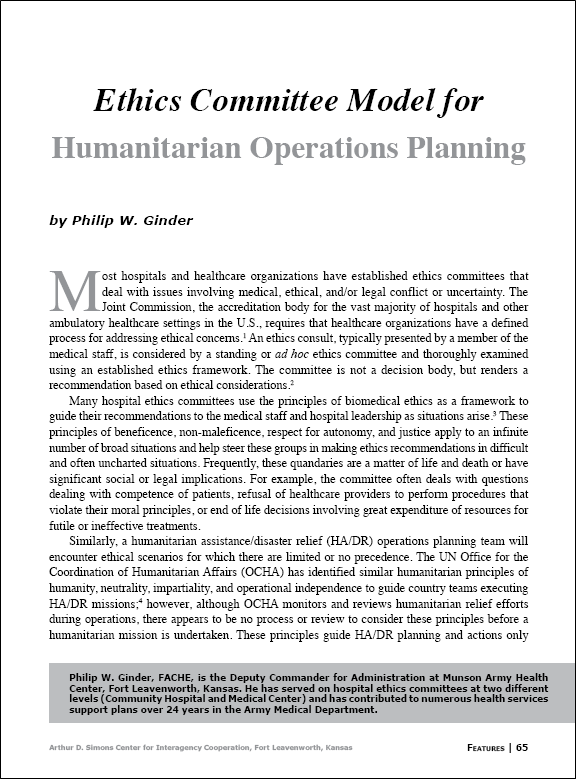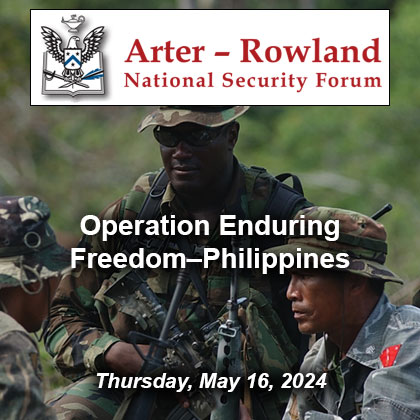Featured Article: Ethics Committee Model…
Featured article:
Ethics Committee Model for Humanitarian Operations Planning
by Philip W. Ginder
Most hospitals and healthcare organizations have established ethics committees that deal with issues involving medical, ethical, and/or legal conflict or uncertainty. The Joint Commission, the accreditation body for the vast majority of hospitals and other ambulatory healthcare settings in the U.S., requires that healthcare organizations have a defined process for addressing ethical concerns. An ethics consult, typically presented by a member of the medical staff, is considered by a standing or ad hoc ethics committee and thoroughly examined using an established ethics framework. The committee is not a decision body, but renders a recommendation based on ethical considerations.
Many hospital ethics committees use the principles of biomedical ethics as a framework to guide their recommendations to the medical staff and hospital leadership as situations arise. These principles of beneficence, non-maleficence, respect for autonomy, and justice apply to an infinite number of broad situations and help steer these groups in making ethics recommendations in difficult and often uncharted situations. Frequently, these quandaries are a matter of life and death or have significant social or legal implications. For example, the committee often deals with questions dealing with competence of patients, refusal of healthcare providers to perform procedures that violate their moral principles, or end of life decisions involving great expenditure of resources for futile or ineffective treatments.
Similarly, a humanitarian assistance/disaster relief (HA/DR) operations planning team will encounter ethical scenarios for which there are limited or no precedence…
Read the full article
Ethics Committee Model for Humanitarian Operations Planning PDF
Download the complete edition
IAJ 7-2 (Summer 2016) PDF
IAJ 7-2 (Summer 2016) ePub
Philip W. Ginder, FACHE, is the Deputy Commander for Administration at Munson Army Health Center, Fort Leavenworth, Kansas. He has served on hospital ethics committees at two different levels (Community Hospital and Medical Center) and has contributed to numerous health services support plans over 24 years in the Army Medical Department.

READ THE LATEST UPDATES FROM THE SIMONS CENTER
"*" indicates required fields


